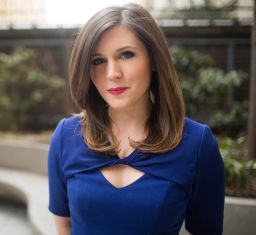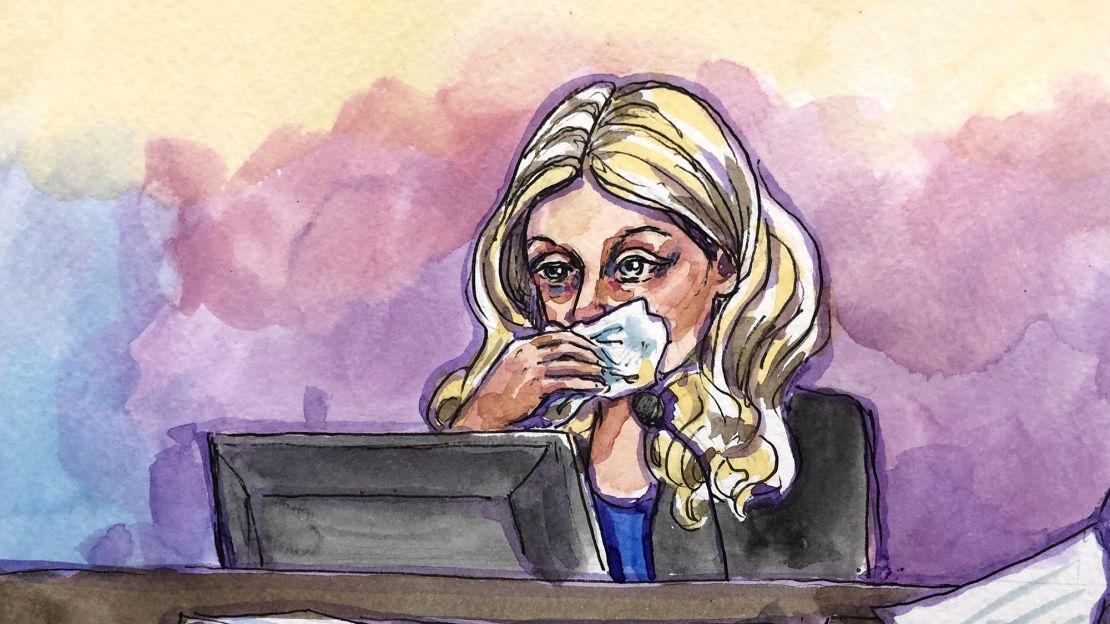Editor’s Note: Jill Filipovic is a journalist based in New York and author of the book “OK Boomer, Let’s Talk: How My Generation Got Left Behind.” Follow her on Twitter. The opinions expressed in this commentary are solely her own. View more opinion articles on CNN.
Elizabeth Holmes may be a victim of alleged sexual violence and intimate partner abuse. She may also be guilty of alleged fraud.

On Monday, Holmes testified in her own criminal trial, where she faces charges of fraud related to her disgraced blood testing company, Theranos. Holmes claimed her company was manufacturing a groundbreaking machine that could run a whole series of blood tests on a tiny amount of blood. In reality, prosecutors say, Holmes and the company’s chief operating officer lied to investors about the machines’ capabilities: The tests were often inaccurate, some of the test results the company was taking credit for weren’t being run on the Theranos machine at all, and the company even sent false results to some consumers. Holmes has been charged with 11 counts of wire fraud and conspiracy to commit wire fraud.
In her recent testimony, Holmes said she dropped out of Stanford after being raped, and then found herself in a relationship with Ramesh “Sunny” Balwani, who she says was abusive and controlling. Balwani went on to serve as COO of Theranos and is also on trial for fraud. Both have pleaded not guilty and face up to 20 years in prison; Balwani’s trial is set to begin in early 2022.
Balwani called the shots in their relationship, Holmes testified, and she was largely under his grip. Balwani misled her, she said, and controlled her. In a trial in which intent to defraud is central to proving guilt, Holmes’ state of mind and her intentions are directly relevant.
But people’s lives are complicated, and two things can be true at once: Holmes can be a survivor of sexual and intimate partner violence, and she can also be guilty of fraud.
If Holmes’ testimony is true, it only makes the red flags in Holmes’ and Balwani’s relationship more apparent. He is 20 years her senior, an age gap that may have been less of an issue if she was in her 70s and he was in his 90s, but is significant given that they met when she was just 18 and barely out of high school, while he was a software executive pushing 40. And Holmes’ testimony painted a troubling picture of the internal workings of their relationship. According to her, Balwani manipulated everything from her leadership strategy to what she ate to how much she slept, Holmes said. She testified that he also forced her into sex. (Balwani has denied the abuse allegations.)
Balwani, Holmes testified, “told me that I didn’t know what I was doing in business, that my convictions were wrong, that he was astonished at my mediocrity,” and that he said in order to find success, “I needed to kill the person I was.” He was older, more experienced and more successful, and so she trusted him and didn’t question him, she said. According to Holmes, she believed her company’s labs were doing great work until a government investigation in California shuttered the Theranos blood testing lab there – which was under Balwani’s control – and the state imposed a two-year ban on Holmes running any labs. That’s when she realized, she said, that “he wasn’t who I thought he was.”

If Holmes was telling the truth in her testimony, she certainly deserves sympathy for what she endured, in college and in her relationship with Balwani. Sexual violence and controlling and abusive relationships are soul-crushing; the latter in particular can lead victims to do things they never believed they would. Some battered women, for example, make excuses for their abusers and keep living with them – even when the abuse gets turned on their children. In doing so, they are arguably enabling child abuse – but that’s because they are abused themselves, to the point where they believe they have no other option. Their legal responsibility has to be filtered through what we know about how abuse breaks people down psychologically.
But Holmes was not just a victim of alleged violence and abuse. She was also at the helm of a company. She was vested with extraordinary power and was aware of the clear rules and responsibilities that came with her position. Her decisions and choices affected a great many peoples’ lives and livelihoods (and their money).
As the founder and chief executive of Theranos, the ultimate responsibility for how the company operated rests with both her and COO Balwani. Nothing about their relationship or what else she suffered relieves her of her professional duties to the company, its shareholders and all of the consumers who were lied to – and who had their health put at risk by Theranos’ false claims.
Sexual assault and domestic abuse can happen to anyone, but it does happen to women more often than it happens to men, and it is perpetrated by men more often than by women. It would benefit all of us if we understood how abuse and manipulation do indeed impact a victim’s decision-making.
But in expanding our understanding of abusive relationships, we needn’t assume that all women who experience abuse are incompetent or relegated to a childlike state in which they bear no responsibility in any aspect of their lives. We can believe Holmes’ testimony that Balwani abused her and still contend she also breached her duty to her company and the public – and that surviving abuse isn’t a blanket get-out-of-jail-free card for fraud.




